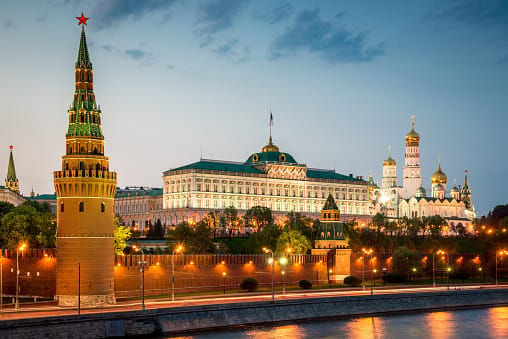
"The only thing necessary for the triumph of evil is for good men to do nothing"
Intelligence Fun Fact:
During World War II, the British government established a secret intelligence agency called the Special Operations Executive (SOE) to conduct covert operations behind enemy lines. One of the most unique aspects of the SOE was their use of "secret agents" who were trained in unusual skills such as lock-picking, forgery, and sabotage. These agents were often recruited from ordinary civilian backgrounds and sent into occupied territories to conduct espionage and sabotage missions.
One of the most famous SOE agents was a woman named Violette Szabo, who was trained in unarmed combat and sabotage techniques before being sent to France in 1944. During her mission, she was captured by the Germans and interrogated but refused to reveal any information about her comrades or mission. Despite being tortured and eventually executed, she became a symbol of bravery and sacrifice for the SOE and the British government.
Today, the legacy of the SOE lives on through the British intelligence agencies MI5 and MI6, which continue to conduct covert operations and espionage activities around the world. The use of unconventional tactics and the recruitment of ordinary civilians with specialized skills remains a key aspect of modern intelligence operations, as governments seek to stay ahead of their adversaries in an increasingly complex global landscape.
Weekend Insights
The world remains in turmoil. Now more than ever it is important to keep a close eye on upcoming elections. This is especially true with elections in Russia, the United States, Turkey, Taiwan, and India. These elections have the potential to significantly impact the geopolitical landscape, the future of these countries, and the security of the world. Below is a comprehensive review with insights into the possible implications of these elections for the countries involved and the wider world.
Turkey
The outcome of the election in Turkey could have significant implications for the country's foreign policy, including its relationship with the United States and the European Union. A victory for the incumbent president Recep Tayyip Erdoğan could lead to further tensions with the West. Erdoğan has been increasingly confrontational with Western nations in recent years. On the other hand, a victory for the opposition could lead to a more pro-Western approach, as they have criticized Erdoğan's handling of Turkey's economy and foreign policy.
Turkey's role in the Middle East and its relationship with Russia is also worth watching. Turkey has been a key player in the Syrian conflict, and its relationship with Russia has been complicated. Turkey has also sought to balance its relations with Russia and the United States, but a more pro-Western approach could lead to a shift in Turkey's foreign policy priorities.
Russia
The upcoming presidential election in Russia is a critical event for the country's future and has global implications. The election is widely seen as a referendum on the rule of Vladimir Putin, who has been in power for more than two decades. If Putin is re-elected, it is likely that he will continue to pursue a more assertive foreign policy, including further military intervention in Ukraine and Syria.
A change in leadership in Russia could lead to a more conciliatory approach towards the West. It is also possible that it could lead to increased instability in the region. Russia has been under Western sanctions since the annexation of Crimea in 2014, and a more conciliatory approach could lead to a lifting of sanctions and a return to the negotiating table.
The outcome of the election could also impact Russia's relations with China. The two countries have deepened their ties in recent years. Putin's continued rule could lead to a more forceful Russian stance towards China, especially given their differences over territorial claims in the Arctic.
Taiwan Election and China's Response
The upcoming presidential election in Taiwan could have a significant impact on the relationship between Taiwan and China. China considers Taiwan a renegade province and has repeatedly threatened to use military force to bring it under its control. The incumbent president, Tsai Ing-wen, has pursued a policy of maintaining Taiwan's de facto independence from China. This has led to increased tensions between the two countries.
If Tsai Ing-wen is re-elected, it is likely that China will continue to take a hardline approach toward Taiwan. China could step up its military drills and increase economic pressure on Taiwan to force it to accept its sovereignty claims. China could also become more enboldened in the South China Sea, where it has territorial disputes with Taiwan and other countries in the region. This could lead to further tensions in the region and increase the risk of military conflict.
If the opposition candidate wins the election, China could take a more conciliatory approach towards Taiwan. A more moderate leader in Taiwan could provide an opportunity for China to engage in talks and negotiations aimed at resolving the long-standing dispute. However, given the current state of relations between Taiwan and China, it remains uncertain if a change in leadership in Taiwan would lead to a significant shift in China's approach.
Indian General Election
The 2024 general election in India is expected to be the largest election in human history, and the outcome could have significant implications for the country's foreign policy, including its relationship with China. The incumbent ruling party, the Bharatiya Janata Party (BJP), has pursued a more decisive foreign policy towards China, with both countries engaged in a border dispute in the Himalayan region.
If the BJP wins the election, it is likely that India will continue to take a tough stance toward China. This could lead to further tensions and potential conflicts between the two countries. China could respond by increasing its military presence in the region and stepping up economic pressure on India, including limiting trade and investments.
If the opposition party wins the election, it could lead to a more cautious approach towards China. The opposition has been critical of the BJP's foreign policy and has called for a more diplomatic approach towards China. This could provide an opportunity for both countries to engage in talks and negotiations aimed at resolving their disputes. Nevertheless, given the current state of relations between India and China, it remains uncertain if a change in leadership in India would lead to a significant shift in China's approach.
United States
The 2024 presidential election in the United States is shaping up to be a highly contested race, and the outcome could have significant implications for the country's foreign policy. A Republican victory could lead to a more confrontational approach towards China, Russia, and Iran, as the party has traditionally taken a harder line on these issues. In contrast, a Democratic victory could lead to a more cooperative approach, as seen in the Obama administration's pivot to Asia and the Joint Comprehensive Plan of Action with Iran.
The outcome of the election could also impact the United States' relationship with its traditional allies in Europe and Asia. The Trump administration's approach to NATO and other alliances was often seen as undermining the United States' traditional leadership role in the world. A new administration, depending on the party in power, could seek to repair those relationships and reaffirm the United States' commitment to global institutions and norms. It could also see a decline in support for NATO within a new administration.
Headlines
Founder of Wagner Group Criticizes Russian Military Strategy in Bakhmut

Yevgeny Prigozhin, the founder of Wagner Group, has released a series of angry videos criticizing the Russian military's policies. He accused them of withholding "stockpiles of ammunition" from his mercenaries fighting for the eastern industrial city of Bakhmut, Ukraine. The Institute for the Study of War (ISW) has assessed that Prigozhin's visible and visceral anger is a sign that the Russian defense ministry has "deprioritized the Bakhmut offensive in favor of preparing to defend against an anticipated Ukrainian counteroffensive."
Analyst Comment:
The escalating tensions between Wagner Group founder Yevgeny Prigozhin and the Russian Ministry of Defense (MoD) over the fight for Bakhmut could indicate a shift in Russia's military strategy in Ukraine. The de-prioritization of the Bakhmut offensive may be a tactical decision to prepare for an anticipated Ukrainian counteroffensive. This shift could be a significant threat to Russian forces. However, this could also leave Wagner Group and Prigozhin in a particularly bad spot if they continue to pursue their goals in the city.
The heavy casualties and standstill battles in Bakhmut have taken a toll on both sides of the conflict, particularly Wagner forces and recruited Russian convicts fighting along the front lines. Prigozhin's desperate pleas for increased Russian military support highlight the significant losses suffered by Wagner in Bakhmut. Despite this, Prigozhin has not shown any willingness to back down from his efforts to capture the city. This could lead to further casualties and setbacks for his mercenaries.
Prigozhin's public criticism of Russian leadership and military policies could signal a rift between him and the Kremlin. As a once-close ally to Russian President Vladimir Putin, Prigozhin's recent actions suggest that he is increasingly asserting his independence and autonomy from Moscow. This could have significant implications for Russia's military strategy in Ukraine and for Prigozhin's future involvement in the conflict.
U.S. Denies Russian Claims of Drone Attack on Kremlin

On Wednesday, an alleged drone attack on the Kremlin aimed at assassinating President Vladimir Putin was reported. The Russian government accused Ukraine of carrying out the attack with the help of the United States. The U.S. denied any involvement, and called the accusations "ludicrous." Despite continued Russian attacks, there is no sign of an intensification on Moscow's part.
Analyst Comment:
While Russia accuses Ukraine of staging the drone attack on the Kremlin, it is unlikely that Ukraine would take such a risk. It would make little sense for Ukraine to launch an attack that could escalate the war and invite further Russian aggression. Furthermore, the Ukrainian government has denied any involvement in the attack, calling it a false flag operation by Moscow.
The accusations and counter-accusations between Russia, Ukraine, and the U.S. show how deeply divided the region remains. The war in Ukraine has been ongoing for longer than Putin expected. Tensions between Russia and the West continue to increase every day. The alleged drone attack on the Kremlin, whether a false flag or otherwise, is just the latest incident in a long list of provocations that have kept the conflict simmering.
Interesting Articles from the Weekend

Stay safe out there



